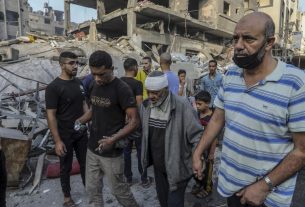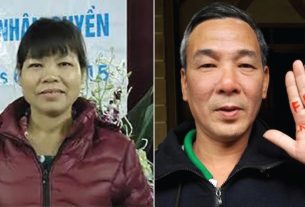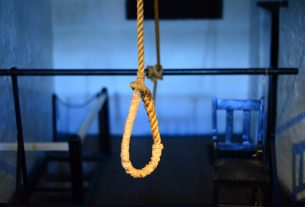(Bangkok) – Bangladesh authorities should accept the offer from the United Nations to support an independent commission of inquiry into enforced disappearances by the country’s security forces, Human Rights Watch said today on the International Day of the Victims of Enforced Disappearances. The authorities repeatedly deny that Bangladesh security forces have committed enforced disappearances, instead repeating farcical claims that those missing are in hiding.
According to Bangladeshi human rights monitors, security forces have committed over 600 enforced disappearances since 2009. While some people were later released, produced in court, or said to have died during an armed exchange with security forces, nearly 100 people remain missing. The government has refused to take up the offer from the United Nations to help establish a specialized mechanism to investigate allegations of enforced disappearances in line with international standards.
“Bangladesh authorities are fooling nobody by continuing to deny the reality of enforced disappearances, and instead are prolonging the suffering of families who are desperate to know the whereabouts of their loved ones,” said Julia Bleckner, senior Asia researcher at Human Rights Watch. “The government should show genuine commitment to addressing abuses by cooperating with the UN to open an independent commission of inquiry into enforced disappearances.”
“I can’t express how painful it’s for me to wait every moment with the hope that one day my father will come to me and I will embrace him as others do,” 12-year-old Adiba Islam Ridhe said at a recent demonstration. “But it has been 10 years and there is no end to my waiting.” Her father, Parvez Hossain, an activist with the opposition Bangladesh Nationalist Party (BNP) was forcibly disappeared on December 2, 2013, when Adiba was 2. Hossain and three other BNP activists were walking to meet friends at an amusement park when a white van drove up and pulled them inside. Shortly after the four men were picked up, a contact said he saw them in custody at the Police Detective Branch office, but the authorities denied they were holding him. As with dozens of others, Hossain’s whereabouts remain unknown.
On December 10, 2021, the US government designated Global Magnitsky human rights sanctions against Bangladesh’s Rapid Action Battalion (RAB) and top commanders implicated in abuses, particularly enforced disappearances and extrajudicial killings.
Yet, instead of independently and transparently investigating allegations of enforced disappearances, Bangladesh authorities harass and intimidate victims’ families. Families say that authorities repeatedly interrogate them about the whereabouts of their relatives despite missing person complaints lodged with the police. Officials threaten and pressure families to withdraw or revise their police reports to remove any evidence implicating security forces in the disappearance. Families also reported authorities showing up at their homes and forcing them to sign false statements that their family member was not forcibly disappeared and that they had intentionally misled the police.
Ruling party supporters and authorities have repeatedly obstructed diplomats from meeting with families of victims of enforced disappearances. In just one example, on December 14, 2022, the United States Ambassador to Bangladesh, Peter Haas, had to end a meeting with victims’ families due to security concerns when ruling party supporters tried to force their way in. Government authorities responded by defending the ruling party supporters and suggesting that the ambassador should not have held the meeting.
The government has repeatedly ignored calls by donor governments, the UN, human rights organizations, and civil society to meaningfully address enforced disappearances by its security forces.
Bangladesh is party to all core UN human rights treaties except for the treaty on enforced disappearances. During her visit in August 2022, the then-UN high commissioner for human rights, Michelle Bachelet, urged the Bangladesh government to accede to the convention and invite the UN Working Group on Enforced Disappearances to visit Bangladesh to “show a commitment to decisively address this issue.”
“If the Bangladesh government is serious about lifting the human rights sanctions placed on its abusive forces, it should take concrete steps toward accountability,” Bleckner said. “Accountability starts with admitting that enforced disappearances are taking place and transparently and independently investigating allegations.



